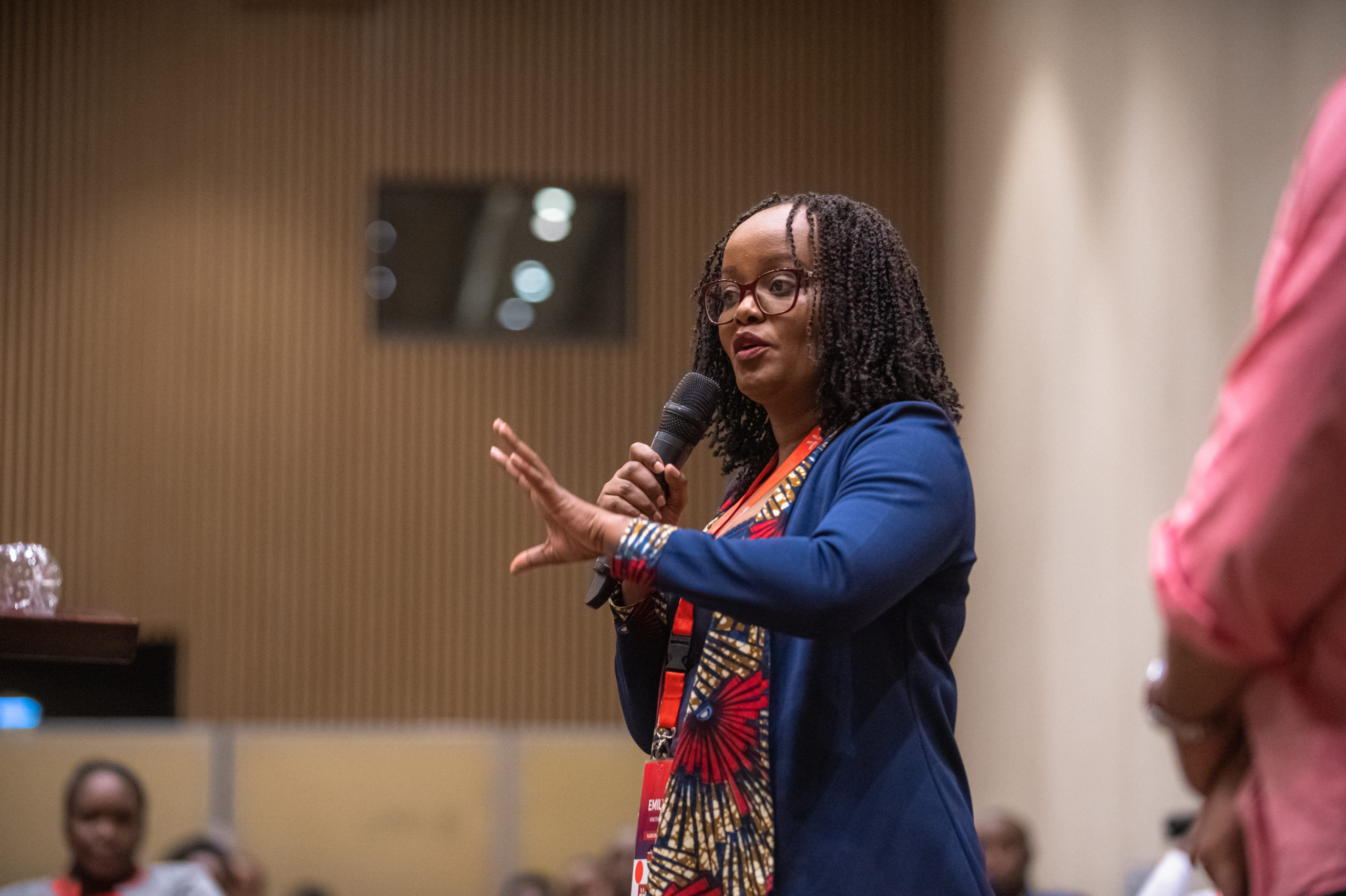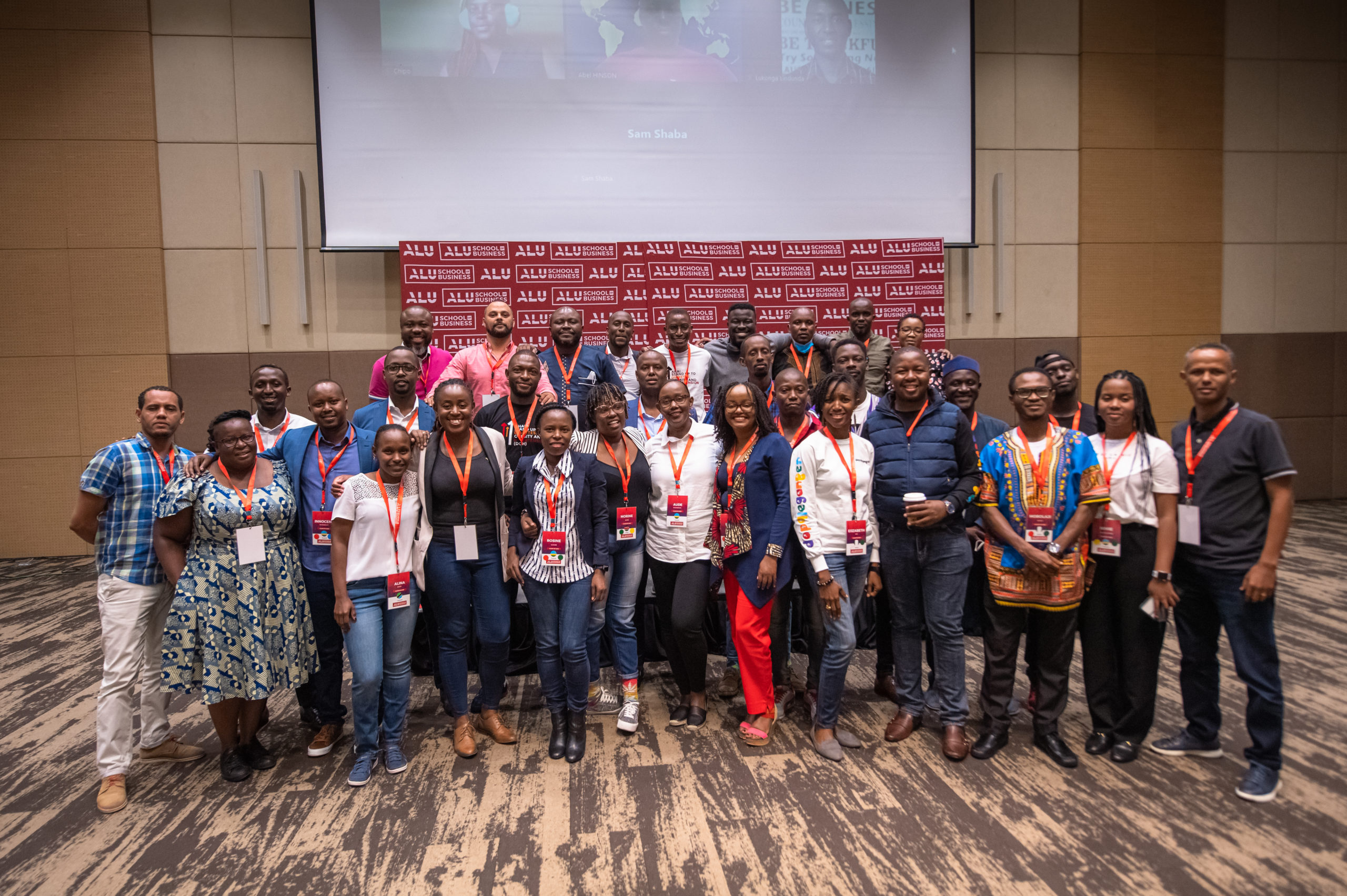We live in a high-paced environment where emerging leaders are often expected to come with strong leadership, ownership and accountability behaviours – all on top of sharp technical skills. I don’t know about you, but unless you’re one of the few born leaders, leadership is something that needs to be developed and nurtured on a consistent basis.
Regardless of your career level or industry, executive coaching can be an amazing tool to make your development process as an emerging leader more thoughtful, intentional and smooth. Why figure it all out on your own, when you can have the assistance of an outside expert?
We reached out to ALUSB Alumna, Akua Nyame-Mensah, who is a strategic advisor and professional coach, to explore what executive coaching entails and its benefits for your personal and professional life.
Before immersing herself fully into coaching, Akua worked for Africa’s first tech unicorn, Jumia, where she helped build the real estate platform, Jumia House in Ghana and went on to lead Jumia House Nigeria. It was during her time at Jumia that Akua took her first step towards becoming a coach by getting her professional coaching certificate at TeamBuilding Africa (TBA) Consults. “For me, a coach is not necessarily an expert. The client is always meant to decide what we focus on and what’s important. My job is to help facilitate them, help guide them, help identify potential challenges, pitfalls and distorted thinking. I believe that people are already quite good by themselves and it’s my job, as the coach, to take them from functional to optimal.”
Here are some of the main benefits of executive coaching through the lens of Akua:
1. An improved sense of self-awareness
Self-awareness is where growth begins. It is the first step towards breaking away from your comfort zone and seeing things differently. A coach can be a catalyst for this development by helping new leaders see themselves from an outsider’s perspective. “Coaching involves a lot of self-study and self-reflection for the client. We all have an idea of who we are, how other people perceive us and then there’s that bit of you that’s always going to be hidden. Through coaching, you can get a better idea of who you are and how you present yourself to others. That knowledge can help you influence people better, leverage your strengths and identify key people that will help you improve your areas of growth. A greater sense of self-awareness can also lead to better time management because you have a better understanding of what’s important to you.”
2. A better understanding of your strengths and growth areas
Some skills may be fine as mid-level employees but as you enter into senior leadership roles, new expertise is needed. Coaching can help you identify those growth areas and help you develop them further. ”Through coaching and self-coaching myself, I learned more effective ways to have conversations about things I don’t necessarily agree with. I was always confident enough to say “no, I don’t agree with you”. But now I am able to approach it in a more productive way, like: “we have different ways of looking at this, I can see it from your point of view, this is mine…”. Just being a bit more diplomatic in my approach has had a huge impact on my professional life.”

Inversely, you might already have some leadership skills that you’re not even aware of. In that case, people like Akua can be the mirror that you need to recognise the uniqueness and value of the capabilities that you already have. “As a coach, my interest really lies in providing or helping to facilitate a conversation where people get fresh ideas, fresh perspectives and see things from a different point of view. My goal is then to help them move forward and leverage their resources, all while keeping them accountable. Every coaching session is a little bit different. If people feel a shift, have thought through a behaviour change or get a new idea for business development, that’s a successful conversation.”
3. Better leadership skills
As a leader, your responsibilities go beyond your own performance; you’re also managing a team that looks to you to make the big decisions. Executive coaching can help emerging leaders drive innovation and autonomy within their teams. “I have always been really interested in leadership and I have always been involved in leadership to some extent, both in sports and in my career. A lot of my initial interest in coaching came from wanting to be a better leader for those below me and a better colleague and support to those above me. What I quickly realised from my time at Jumia was; just because I had an extremely Ghanaian name or even had the opportunity to live in several African countries, didn’t mean that I would be able to be an effective leader in Ghana or be able to effectively influence people towards a goal. Not everyone is going to listen to what you have to say. You have to think of different ways to motivate people. You have to become comfortable with trying different things, you have to become comfortable with failing a little bit more openly.”
Are you ready to question your assumptions about yourself, discover your strengths and growth areas and become a better leader? ALUSB is offering one 60-minute executive coaching session with our very own Akua Nyame-Mensah ’19, People & Business Strategist and professional certified coach!
To qualify for these offers, you must:
- Submit your complete application by end of day 24 June 2019.
- Gain full admission to and confirm your seat in the ALUSB October 2019 EMBA programme, in order to be connected to your executive coach.
- Conduct your coaching session(s) before 27 October 2019.
Don’t hesitate and submit your application at bit.ly/APPLYALUSB







